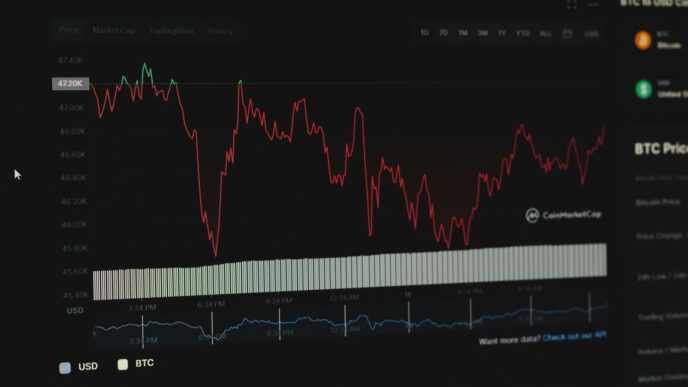Trying to keep up with technology can feel like a full-time job. There are always new devices, big ideas, and surprising breakthroughs. If you want to stay in the loop without getting overwhelmed, reading the right magazines can help. Here’s a list of the top 10 computer magazines you should read in 2025. Whether you’re a tech newbie or a lifelong fan, these magazines cover everything from the latest gadgets to big-picture trends. No need to dig through endless websites—these picks have you covered.
Key Takeaways
- These top 10 computer magazines offer a mix of news, reviews, and how-tos for all tech interests.
- Magazines like Wired and MIT Technology Review cover both technology and its effect on society.
- PCMag and PCWorld are great for hands-on advice and product recommendations.
- The MagPi is a solid choice for anyone interested in Raspberry Pi projects and coding.
- Reading these magazines is a simple way to stay updated on what’s happening in the tech world.
1. Wired
Wired magazine always manages to feel a little bit ahead of everyone else. It’s the go-to read for anyone interested in how tech shapes everything—culture, politics, business, even art. I like how every issue brings something new, whether it’s a breakdown of an emerging technology or an opinion on digital ethics. Wired isn’t just about gadgets or reviews. It’s about the weird ways technology sneaks into our daily routines and the stories of people behind the latest trends.
Here’s what you can expect from Wired in 2025:
- Thought-provoking articles on AI, data privacy, and the latest internet trends.
- Interviews with founders and thinkers who are changing the game.
- Insights on the intersection of technology and society that you won’t find anywhere else.
Wired is published by Condé Nast and is available both in digital and print. Their online platform also updates regularly, so you get fresh stories even between monthly issues. If you want technology news that looks past the surface and actually makes you think, Wired should always be in your reading list.
2. MIT Technology Review
MIT Technology Review has been around longer than almost any other tech magazine—since 1899, actually (yeah, you read that right). It’s put out by the folks at MIT, and it still keeps its original promise: Show what’s just over the horizon, how tech is disrupting entire industries, and what stories people heading into tomorrow need to know.
MIT Technology Review’s coverage sits at the intersection of emerging technology, science, politics, and business, often tackling topics that others gloss over. If you want stories that help you understand both the big tech waves and the human side, you’ll find them here. Each issue is packed with expert opinions, research-backed features, and interviews with people shaping our digital future.
People look to it for more than just tech gadget updates (though you’ll find those, too). Instead, you get:
- Reports on artificial intelligence, biotechnology, cybersecurity, and environmental tech
- Data and analysis about how new inventions affect society and policy
- Deep-dive interviews with trailblazers, including founders, researchers, and industry leaders
Here’s a quick look at the kinds of hot topics they’ve recently covered:
| Section | Recent Focus Areas |
|---|---|
| AI & Machine Learning | Responsible use, automation |
| Biotech | Medical breakthroughs, CRISPR |
| Cybersecurity | Data privacy, threat trends |
| Climate Tech | Clean energy, carbon capture |
| Digital Society | Social networks, regulation |
What sets this magazine apart is how often it’s the first to break big stories or offer clear, broad views on things that will shape next year’s tech world—whether it’s a brand-new product like iPager, policies looming in Washington, or grassroots inventions.
It’s not always an easy read, but if you like your tech news with a healthy serving of analysis, MIT Technology Review is worth bookmarking (or subscribing to, if you prefer print).
3. PCMag
If you’re someone who always wants to know what the latest laptop or gadget can really do, PCMag is almost required reading. PCMag has been a staple in the tech world, offering well-tested reviews and clear advice for decades. It’s not just for computer geeks—anyone shopping for devices, dealing with an upgrade, or curious about where technology is headed will get a lot out of it. The writers really get into the details, but in a way that feels straightforward, so you don’t have to be an expert to follow along. Their product reviews are probably some of the most trusted around (seriously, I never buy a piece of tech without checking their review first).
Here’s why people head to PCMag’s expert guides and reviews:
- Extensive, real-world product reviews—hardware, software, and services
- News about upcoming tech, changes in the industry, and digital security
- Helpful buying guides for everything from gaming PCs to Wi-Fi routers
And just in case you’re curious about the sort of reach PCMag has, check out these 2025 stats:
| Platform | Followers/Readers |
|---|---|
| 980,000 | |
| 404,300 | |
| 528,100 |
There’s something oddly comforting about how thorough they are. Whether you’re comparing laptops for school, setting up a new smart home gadget, or just want to stay in the know about technology, PCMag is the kind of source that makes those decisions way less stressful. It doesn’t talk down to readers, and it doesn’t overcomplicate things, which is rarer than you’d think. Give it a read the next time you’re considering a new tech purchase—it might make the process a whole lot easier.
4. Computerworld
I’ve been reading Computerworld for quite a while now, especially when I need to understand how bigger technology shifts are actually playing out in real-world businesses. The magazine stands out for its focus on practical analysis and ongoing trends that really matter to IT folks and decision makers. It doesn’t just toss around buzzwords or shiny product launches—it explains what’s actually new in the trenches, like what generative AI means for teams, or why the latest Windows update might throw off office setups.
If you’re running tech for any kind of business, you need resources that don’t sugarcoat things. Computerworld does a few things right:
- Breaks down tough topics like Apple devices in the office, collaboration tools, or new software rollouts with clear explanations.
- Regularly reports on big stories around cybersecurity, mobile issues, and software productivity that actually hit companies’ bottom lines.
- Offers a steady stream of updates that busy IT pros can rely on, not just quarterly or whenever something flashy happens.
Here’s a quick look at recent coverage highlights:
| Focus Area | Recent Topics |
|---|---|
| Generative AI | Best workplace uses, pitfalls |
| Mobile & Windows | Updates, enterprise problems |
| Office Suite Tools | What’s new, user security tips |
| Apple at Work | Integrating Macs, cost analysis |
Honestly, I’ve picked up some really useful tricks and context just by keeping up with their weekly updates. If you want a real snapshot of what tech means for companies this year, Computerworld deserves a spot on your list. It’s known for its expert coverage on technology topics for IT professionals, from software updates to workplace challenges. That sort of reliability is rare, and it makes a difference when you need to make actual tech decisions—not just talk about them.
5. Technology Magazine
Technology Magazine is something a lot of folks in the tech scene end up reading, including IT leaders, entrepreneurs, and anyone else hoping to keep up with what’s changing in the industry. You’ll notice right away how it brings together announcements from major tech companies and real-world stories from the people actually shaping these trends. There’s never just hype or theory—it’s stuff actually happening right now, which is kind of rare.
Day-to-day, you’ll run into articles covering:
- Major product launches (think new software, hardware, or even entire digital platforms coming to market)
- Case studies where companies lay out exactly how they tackled some sticky business challenges
- Interviews with executives talking about everything from AI growth to cybersecurity breaks
If you’re a numbers fan, here’s a quick look at the magazine’s presence as of 2025:
| Platform | Followers |
|---|---|
| 1,400 | |
| 3,100 | |
| 926 |
One thing that’s always stood out to me is how Technology Magazine sometimes highlights lesser-known innovations—like, one month it’s about the latest mobile network tech, next month it’s covering the new Virgin Galactic spaceship. It’s the sort of read where you can go in expecting to learn about business IT, but then end up fascinated by something you didn’t even know existed.
If you want a resource that covers what’s actually working (and failing) in tech, rather than just chasing trends, it’s definitely one to bookmark for 2025.
6. Tech Advisor

Tech Advisor is probably one of the first sites that pops up when you Google tech advice—and for good reason. They keep things clear and straightforward, so even folks who aren’t deep into tech culture can figure out what phone to buy or which smart plug won’t drive them crazy.
Instead of just recycling the same press release stuff everyone else does, Tech Advisor’s team is always hands-on: testing the latest gadgets, trying out new tablets, and poking at the quirks of different operating systems. Their articles cover a wide range:
- Honest reviews of laptops, PCs, and smartphones
- News on what’s next in the world of consumer tech
- Really helpful "how-to" guides that don’t assume you already speak fluent tech jargon
Let’s say you’re looking at upgrading your home office or comparing the latest gaming accessories. Tech Advisor regularly stacks products up against each other so you don’t have to dig through ten tabs to see what’s worth your money:
| Product | Rating (2025) | Price (USD) |
|---|---|---|
| Laptop A | 4.5/5 | $1,299 |
| Smartphone B | 4/5 | $799 |
| Headphones C | 3.5/5 | $159 |
And one last thing—if you’re ever tired of endless YouTube reviews that don’t get to the point, Tech Advisor’s guides are a breath of fresh air. They fixate on what matters: price, quality, ease of use, and whether something’s a pain to set up. So if you’re the sort of person trying to get the most out of your next device (without needing to phone a friend), this magazine is a solid bet.
7. The MagPi
If you’re into Raspberry Pi projects, you’ve probably heard of The MagPi. It’s the official magazine for Raspberry Pi users, and honestly, it’s become a must-read for anyone interested in using low-cost computers for all kinds of tech experiments. This isn’t just for pros—plenty of folks who open up The MagPi are hobbyists or total beginners looking to tinker with something new on weekends.
Here’s what sets The MagPi apart:
- Every issue includes step-by-step guides on things like building retro game consoles or home automation gadgets.
- You’ll find regular news about new Raspberry Pi models, creative uses, and interviews with the people making cool stuff.
- There are code samples and troubleshooting tips, so you don’t get stuck halfway through a project.
The community feeling is real—lots of projects are submitted by readers who want to share what they’ve built, kind of like how groundbreaking advancements in tech happen thanks to open sharing. As Raspberry Pi keeps evolving, The MagPi feels more relevant than ever—whether you want to build something simple or take on an ambitious challenge. It’s one of those magazines that makes you want to pick up a soldering iron, no matter your skill level.
8. Discover
If you’re someone who’s just as interested in the broad world of science as you are in technology, then Discover magazine should be on your reading list. This publication has a knack for making complex scientific stories readable and even a bit fun. It covers not just computers and new tech, but also biology, space exploration, physics, and health breakthroughs.
Here’s why I keep going back to Discover:
- Mix of tech and broader science, so you get a bigger picture than most specialized computer magazines.
- Articles often focus on how science topics connect to real life—think privacy and data, medical gadgets, or how AI shapes climate predictions.
- Interesting interviews with researchers, inventors, and the occasional tech CEO.
It’s the sort of magazine that you might pick up meaning to read just one article but end up reading the whole issue. I’ve found some useful tips in their tech-advice columns, too — things like password guidance or practical ways to manage your devices, which line up pretty well with advice for technology professionals.
Plus, their writers give just enough detail to keep you informed without going overboard. If you want a magazine that’s easy to pick up but never feels watered down, Discover is a solid pick.
9. Scientific American
If you’re curious about how new technologies are changing the way we live—and you like your information to be both scientific and approachable—Scientific American is a must-read.
Every issue brings together research news, big ideas, and real analysis on a range of topics like artificial intelligence, robotics, cybersecurity, and the societal effects of breakthrough tech. You won’t find lazy headlines or shallow takes here—Scientific American gets into how these changes affect us all, from privacy concerns to major medical discoveries.
What sets this magazine apart? It’s not just about the latest gadget; it’s about context, ethics, and what innovation really means for our future. Regular features cover:
- Interviews with scientists and industry leaders
- Detailed breakdowns of recent discoveries and inventions
- Accessible explanations of complex concepts, perfect if you don’t have a PhD
To give you an idea of the kind of game-changing news they cover, Scientific American recently explored advances in quantum computing—just as researchers like the 2025 Nobel Prize winners for quantum effects, John Clarke, Michel H. Devoret, and John M. Martinis, brought new discoveries to light. For more on their work, check out this summary of the 2025 Nobel Prize in Physics (their contributions to quantum effects).
If you’re searching for a magazine that balances cutting-edge reporting with thoughtful analysis, Scientific American offers a unique window into how science and tech keep pushing the world forward.
10. PCWorld
When I was looking for advice on buying a new laptop last year, everyone seemed to say the same thing: “Check out PCWorld.” This magazine is always one step ahead when it comes to practical PC news and real-world advice. Whether you want to squeeze the most out of an old machine or explore what’s happening with the latest CPUs, there’s almost always a new article or review that’s actually useful. PCWorld doesn’t get buried in mind-numbing jargon—you get plain talk, and it’s finally clear what all those specs actually mean.
Here are a few things that set PCWorld apart:
- Honest reviews that make it easier to decide between models, like comparing battery lives or display quality.
- Guides for fixing or troubleshooting your gear, written in a way that’s easy to follow (no engineering degree required).
- Industry news that focuses on stuff that matters to regular users—not just massive companies or experts.
They’ve also been sharp on recommending top laptops. The recent PC laptops round-up featured ultra-portable picks, OLED machines, and budget-friendly finds all in one spot—helpful if you hate scrolling for hours to compare choices.
If you’re a PC person, or just want to be sure you’re not getting ripped off, PCWorld is one of the few magazines where reading a whole feature doesn’t feel like a chore. I keep going back, and it’s saved me more than once from buying the wrong thing.
Conclusion
So, there you have it—ten computer magazines that are worth your time in 2025. Whether you’re into hardware reviews, tech news, or just want to keep up with the latest trends, there’s something on this list for everyone. I know it can feel overwhelming with so many options out there, but picking a couple of these magazines to follow can really help you stay in the loop. Some are more focused on business, others on gadgets or software, but all of them bring something unique to the table. Give a few a try, see which ones fit your style, and don’t be afraid to switch things up if your interests change. The tech world moves fast, but with the right magazine in your hands (or on your screen), you’ll always be one step ahead.














